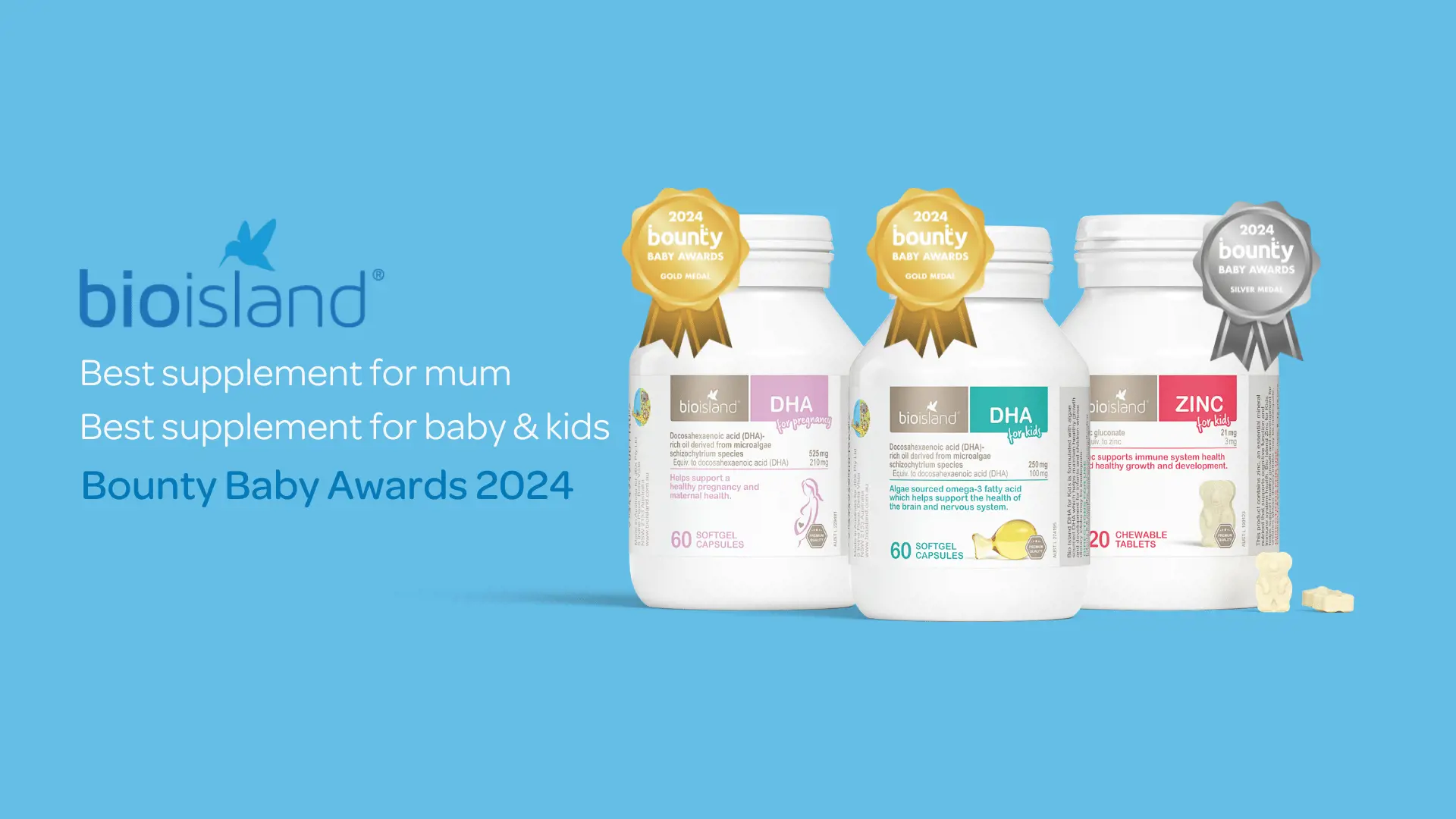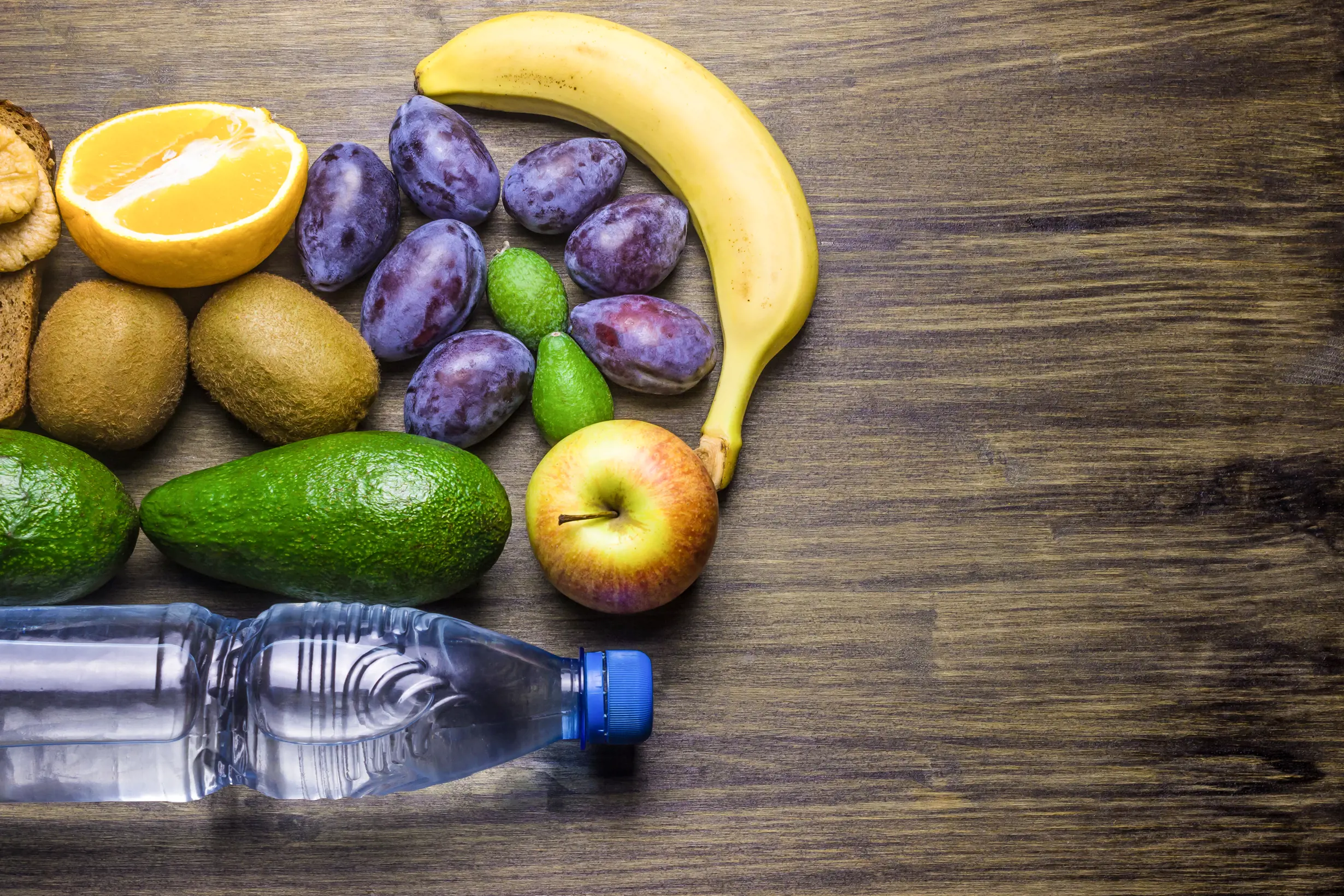
A guide to what each B vitamin does in your body
A guide to what each B vitamin does in your body
Vitamin B’s are a collection of 8 vitamins, they have been traditionally grouped together based on some similarities in their properties.
Health Support
By Bio Island Nutrition Team
Vitamin B’s are a collection of 8 vitamins, they have been traditionally grouped together based on some similarities in their properties, their distribution in natural sources and their functions which overlap. B vitamins are water soluble vitamins and should be consumed in our diets on a regular basis so our body can have an adequate supply of them.
Here is an overview at what each of the B vitamins does and ways you can include them into your diet.
Vitamin B1 (Thiamin)
Role:
Vitamin B1 plays an important role in the production of energy from glucose, and also in the transport of glucose. It also has a role in nerve function and in the function of pancreatic beta-cells, which produce the insulin hormones, making it important for those with important for those with diabetes.
Deficiency:
Thiamin may be easily lost through the kidneys so adequate intake is essential. Whilst you should aim for sufficient intake of vitamin B1 through food, thiamin is very sensitive and availability of it in food can be impacted by several factors including food processing, cooking at high and low temperatures, alcohol consumption, tannins in coffee and black tea. Signs of potential deficiency include fatigue, weakness, numbness or pins and needles in the legs.
Sources:
- Fortified breads and cereals
- Vegemite
- Peanuts and sunflower seeds
- Soybeans
- Pork
*In Australia, it’s mandatory that white and wholemeal flour used for bread is fortified with thiamin.
Vitamin B2 (Riboflavin)
Role:
Used by the body for production of energy and the metabolism of proteins, fats and carbohydrates. Riboflavin also acts an antioxidant, and important for immunity as it is involved in the production of antibodies. Vitamin B2 also helps maintain skin, hair and eyes healthy, including an important role protecting against cataract formation.
Deficiency:
Vitamin B2 is very sensitive to light, so sources of riboflavin such as milk may lose significant amount of its B2 content from being exposed to the sun. Those who do not consume meat and dairy products may be more at risk of deficiency. Things you should look out for with vitamin B2 deficiency and speak to your healthcare practitioner about are cracking lips and corners of the mouth, inflamed tongue, light sensitivity, cataract formation, burning or itchy sensation of the eyes, lips, mouth and tongue.
Sources:
- Dairy milk
- Offal meats, such as liver, kidneys, heart
- Leafy green vegetables
- Eggs
- Fortified breads and cereals
Vitamin B3 (Niacin)
Role:
Like other B group vitamin niacin play an important role in energy production, metabolism and enzyme function. It is also involved in the regulation of blood sugar and combines with the mineral chromium to form the Glucose Tolerance Factor (GFT), niacin is also essential for releasing energy from muscle sugar stores (glycogen), by working with vitamins B1 & B2. Vitamin B3 also works on its own to maintain healthy skin, nerves, intestines and cognitive function.
Deficiency:
The body is able to produce its own niacin, by converting tryptophan, an amino aid obtained from animal and vegetable protein sources, so deficiency is often rare. A lack of vitamin B3 is known to produce a very rare disorder known as pellagra with symptoms of dermatitis, diarrhoea and dementia. Those who consume a diet primarily based on corn or chronic alcoholism are most at risk of pellagra.
Sources:
- Meat
- Fish
- Peanuts
- Dairy milk
- Wheat bran
Vitamin B5 (Pantothenic Acid)
Role:
A key function of vitamin B5 is the making and breaking down of fatty acids in the body, as well as to metabolise carbohydrates, proteins and fats. Vitamin B5 also supports the production of adrenal gland hormones during times of stress and maintaining a healthy nervous system. It also supports the production of red blood cells and can stimulate cell growth in healing tissues.
Deficiency:
Pantothenic acid is found in almost all plant and animal foods in various levels, so deficiency is rare. Similar to other b group vitamins Vitamin B5 is easily destroyed by food processing and cooking. Signs of deficiency include weakness and fatigue, numbness or burning sensation in hands and feet, muscle cramps, poor sleep, difficultly in coping with stress, nausea and stomach cramps.
Sources:
- Royal Jelly
- Meat
- Milk
- Mushrooms
- Yeast
Vitamin B6 (Pyridoxine)
Role:
The body needs vitamin B6 in over 60 enzyme reactions involved in metabolism, especially of carbohydrates and essential fatty acids. It is involved in the production of brain chemicals such as serotonin and GABA, it is also involved in brain development during pregnancy and infancy. As vitamin B6 also plays a role in multiplication of cells this also makes it important for a healthy pregnancy, healthy immune system, mucous membranes, skin and red blood cells.
Deficiency:
Certain groups may are more likely to have issues in the absorption and obtaining enough vitamin B6 and should speak with their healthcare professional for further advice. These groups include people whose kidneys do not work properly, people with autoimmune disorders and people with alcohol dependence. Signs to look out for vitamin B6 deficiency are reoccurring mouth ulcers, cracking of lips and tongue, depression and specifically in children, convulsions.
Sources:
- Vegemite
- Walnuts
- Bananas
- Chicken
- Eggs
Vitamin B7 (biotin)
Role:
Without biotin our body’s metabolism is severely impaired, with biotin involved in the metabolism of glucose, fatty acids, amino acids, genetic material and stress hormones, making its role very important to our body. Biotin is known to support strong nails and healthy hair and has been used in the treatment of seborrheic dermatitis.
Deficiency:
Deficiency of biotin has been associated with dry, flaky skin, facial rashes, nausea, thinning hair and brittle nails. Those who may be more at risk of deficiency are people suffering from alcoholism and also pregnant women, with estimates that up to a third are deficient despite adequate intake, though more research is needed into this area.
Sources:
- Beef liver
- Soybeans & soy flour
- Peanut butter and nuts
- Sweet Potato
- Cauliflower
Vitamin B9 (Folate [Folic Acid])
Role:
Most commonly associated with pregnancy folic acid has an important role to play across all stages of life. During pregnancy folic acid is needed to help prevent neural tube defects and helps the development of the foetal nervous system, as well as DNA synthesis and cell growth. Folic acid is also involved in the production and metabolism of proteins, sugar and nucleic acids during cell division. This is of large importance because without folic acid you body’s cells do not divide properly. Folate is also needed to process an amino acid, homocysteine, it also ensures levels are kept low, this is because If homocysteine rises it may cause damage to artery walls.
Deficiency:
Despite folic acid being widely available in foods the body stores very little of it and dietary sources retain very little of the vitamin during processing and cooking, making it possibly the world’s most widespread vitamin deficiency. Those advised to take a supplement of folic acid should check with their healthcare provider about which type is most suitable, as some people are only able to process the activated form due to common MTHFR gene mutation, it may also be suggested to take a vitamin B12 supplement concurrently, as folic acid supplementation can mask underlying vitamin B12 deficiency. It is also recommended that women trying to conceive or are pregnant speak with their doctor about folic acid supplementation. Signs of folic acid deficiency include megaloblastic anaemia, weakness, fatigue, irregular heartbeat, shortness of breath, difficulty concentrating , mouth sores and hair loss.
Sources:
- Green leafy vegetables
- Sunflower seeds
- Liver
- Citrus fruits
- Peanuts
*Since 2009, all bread sold in Australia (except organic) has been fortified with folic acid.
Vitamin B12 (Cobalamin)
Role:
Vitamin B12 helps with DNA synthesis, keeping your body’s nerve cells healthy and is involved in the process of creating healthy red blood cells. It works with vitamin B9 (folic acid) in many of its processes including assisting with efficiently processing homocysteine amino acid (for more information see above). Vitamin B12 helps to produce and maintain the myelin (insulating layer) surrounding nerve cells including those in the brain and spinal cord and is also a key player in development and function brain cells and the breaking down of some fatty acids and amino acids to produce energy. In order to absorb vitamin B12, the body creates a special carrier protein in the stomach, known as intrinsic factor, this allows for vitamin B12 to then be absorbed in the lower part of the small intestine.
Deficiency:
Certain groups are more susceptible to vitamin B12 deficiency this includes those following a vegan diet and breastfed infants whose mothers are consuming a vegan diet, this is due to vitamin B12 being found in food sources that are animal sources. Others that may be more at risk of vitamin B12 deficiency are the elderly, as the ability to absorb the nutrient through our gut diminishes with age, and those with disorders or surgery which have impacted their stomach or small intestine. Symptoms of vitamin B12 deficiency may be quite variable and may not show symptoms for quite some time for this reason it is good to speak with your healthcare professional about testing vitamin B12 levels. Some deficiency signs include smooth sore tongue, tiredness, exhaustion, numbness, menstrual disorders, difficulty walking or clumsiness, tingling, trembling, poor memory, confusion and lack of concentration.
Sources:
- Liver
- Meat
- Fish
- Cheese
- Eggs
This information does not take into account your personal situation and is general in nature. You should consider whether the information is appropriate for your needs and seek professional medical advice.
Always consult your healthcare professional before taking any supplements or if any concerns arise.






